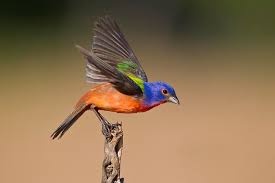Indigenous battles to defend nature have taken to the streets, leading to powerful mobilizations like the gathering at Standing Rock. They have also taken to…

species

“Wherever something is wrong, something is too big.” ― Leopold Kohr Most of us reject generalisations. We recognise that the real world is complex, messy…

Graphic from the State of North American Birds report. The just released State of North America’s Birds report is grim reading. Based on a comprehensive evaluation of…

There's no question about it. A new epoch—the Anthropocene—has begun. So says an international group of geoscientists, in a paper published Friday in the journal…

Scientists have found an abrupt change about 6,000 years ago in how terrestrial plant and animal species coexisted, right about the time human populations were…

Professor Henry Giroux holds the Global Television Network Chair of English and Cultural Studies at McMaster University in Ontario Canada. He was previously the Waterbury…

UCLA geochemists have found evidence that life likely existed on Earth at least 4.1 billion years ago -- 300 million years earlier than previous research…

A much-anticipated book in conservation and natural science circles is EO Wilson’s Half-Earth: Our Planet’s Fight for Life, which is due early next year. It…

Global warming is putting the squeeze on bumblebees. In the most comprehensive study ever conducted of the impacts of climate change on critical pollinators, scientists…

We are in the middle of the first great mass extinction since the end of the age of the dinosaurs. That's the conclusion of a shocking…

This is the time of year when birds come out and really spread their wings, but since a disastrous day just before spring's arrival four…

A talk with professor R.S. Deese about Aldous and Julian Huxley, transhumanism, ecology, and the future of our species.
